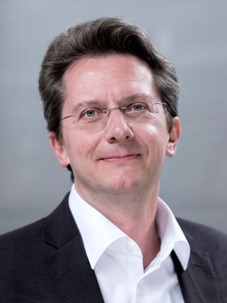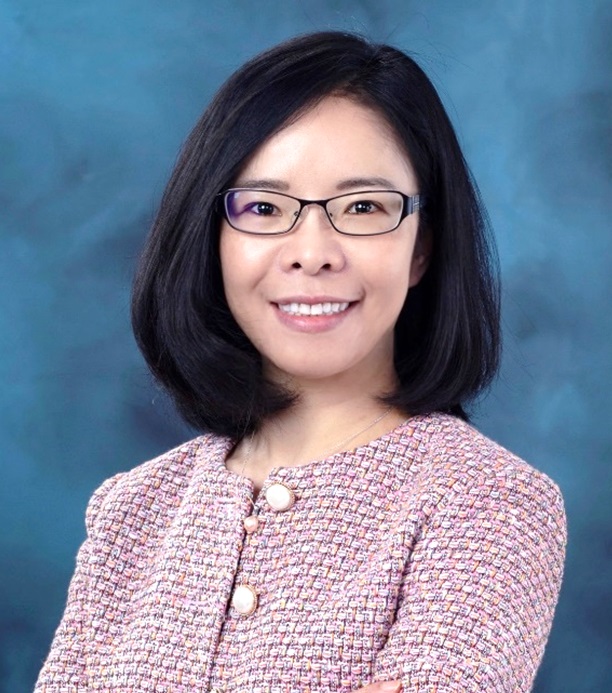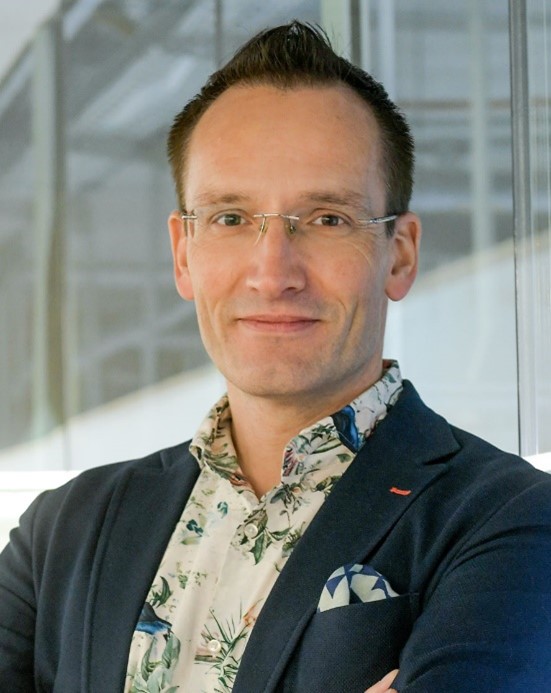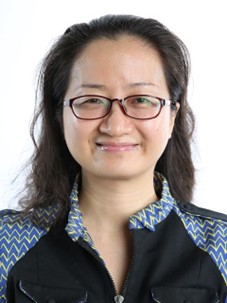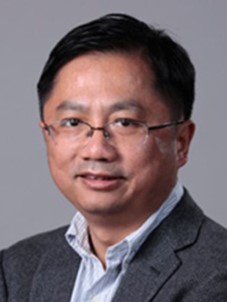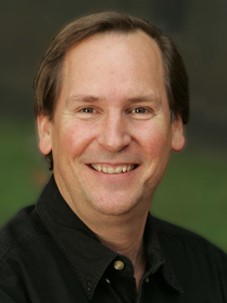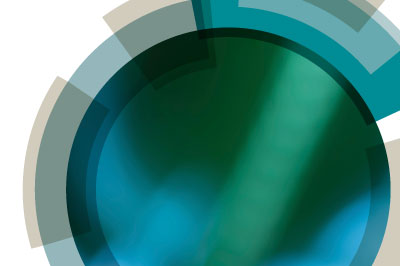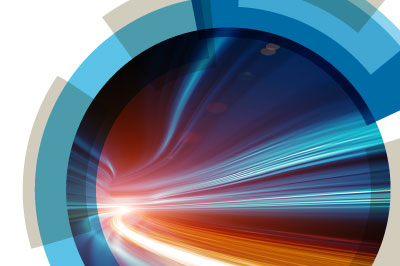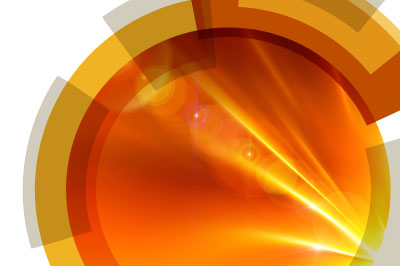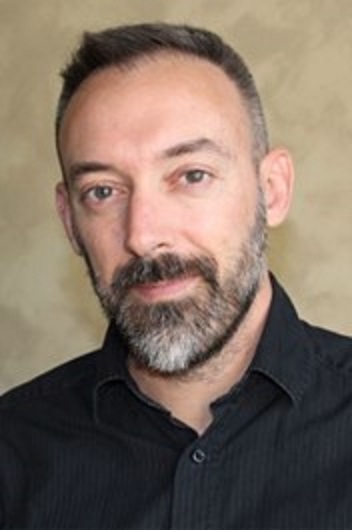 Renaud Demadrille, CEA-Grenoble, France
Renaud Demadrille, CEA-Grenoble, France
Renaud Demadrille is a senior research fellow at the Interdisciplinary Research Institute of Grenoble (IRIG) at the French Alternative Energies and Atomic Energy Commission (CEA) in France. He received his PhD in organic chemistry in 2000 from the University of Aix-Marseille II in France where he was a fellowship of PPG Industries and Essilor International. After obtaining PhD, he worked as a junior research engineer in the R&D center of an international chemical company. Then he joined in 2002 the CEA as a postdoctoral fellow to develop semiconducting polymers for organic photovoltaics before being appointed in 2005 as a permanent researcher at CEA-Grenoble in the Fundamental Research Division. His research focuses on the synthesis and the characterisation of new pi-conjugated molecules and macromolecules for organic and hybrid photovoltaics, optoelectronics and thermoelectricity. In 2018, he received the prize of "Innovation in chemistry for energy" by the French Society of Chemistry (SCF) and in 2019 he was recipient of a European Research Council (ERC) Advanced Grant.
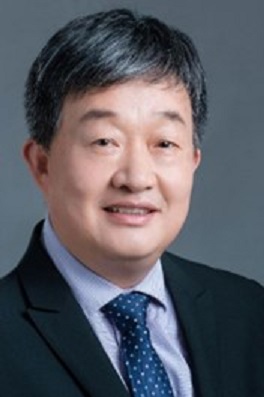 Zhongyi Jiang, Tianjin University, China
Zhongyi Jiang, Tianjin University, China
Zhongyi Jiang is a Professor in the School of Chemical Engineering and Technology at Tianjin University. He received his PhD degree from Tianjin University (China) in 1994. He was a visiting scholar of University of Minnesota with Prof. Edward Cussler in 1997 and California Institute of Technology with Prof. David Tirrell in 2009. He is the winner of National Science Fund for Distinguished Young Scholars in China, the Cheung Kong Chair Professor and the Fellow of the Royal Society of Chemistry. His group is interested in biomimetic and bioinspired membranes and membrane processes, biocatalysis, and photocatalysis. He has co-authored over 600 publications. He is selected on the list of highly cited scholars (chemical engineering) in China and the list of highly cited scholars (chemical engineering) in the world.
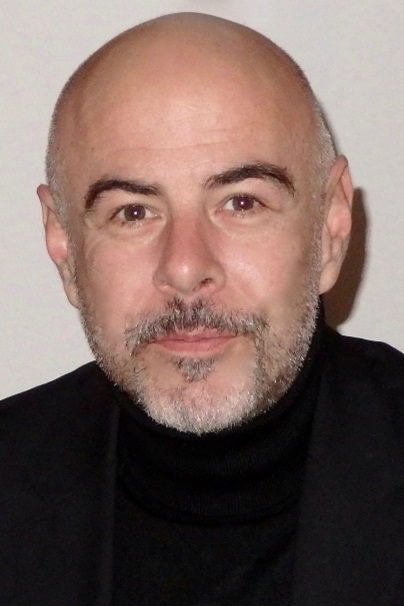 Emil List-Kratochvil, Humboldt-Universität zu Berlin, Germany
Emil List-Kratochvil, Humboldt-Universität zu Berlin, Germany
Emil List-Kratochvil graduated in Technical Physics (1998) and received a doctoral degree in experimental Solid-State Physics in (2000) from Graz University of Technology, where he also went on for a Habilitation in Solid State Physics (2003) to become Associate Professor (2004). 2006-2015 he was appointed Scientific Managing Director of the NTC Weiz GmbH. Since 2015 he is full Professor for Hybrid Devices in a joint appointment in the Departments of Physics and Chemistry of Humboldt-Universität zu Berlin. Among others he received the Fritz Kohlrauschpreis of the Austrian Physical Society (2004). Since 2018 he is also leader of the joint researcher group “Generative production processes for hybrid components” at Helmholtz-Zentrum Berlin. With his team he is currently working on electronic and optoelectronic components (based on hybrid material systems and organic or hybrid semiconductors), additive resource-efficient deposition techniques and in-situ nanostructuring and combinatorial synthesis methods. Based on his broad experience in working in joint R&D projects with partners from academia, startup companies and industry, his team is not only work on basic research projects but also undertakes substantial efforts to transfer findings from basic research to applications.
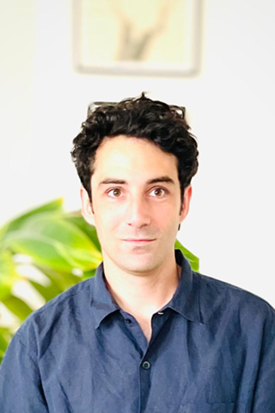 José A. Márquez Prieto, FAIRmat, Germany
José A. Márquez Prieto, FAIRmat, Germany
Dr. José A. Márquez is a domain expert in the field of optoelectronic materials and the scientific coordinator of the NFDI (National Research Data Infrastructure) consortium FAIRmat at Humboldt University in Berlin. Márquez's research interests include novel compound semiconductors, high-throughput methods for energy materials, data-driven experimental workflows, materials informatics, and artificial intelligence in general. Currently, he is working alongside the FAIRmat team to develop NOMAD as a FAIR data management platform for experimental materials science.
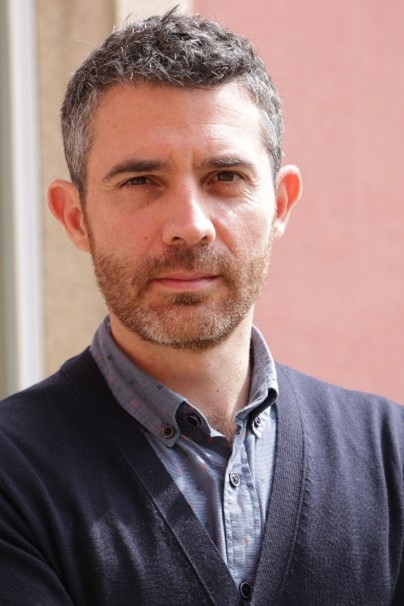 Jaime Martin, University of La Coruña, Spain
Jaime Martin, University of La Coruña, Spain
Jaime Martín is an associate professor at University of La Coruña (Spain), where he leads the Group of Functional Polymer Materials (https://www.jaimemartinlab.com), which is devoted to gain understanding of the solid-state microstructure of organic semiconductors and how this is connected with their optoelectronic properties. He also holds a visiting Ikerbasque position at POLYMAT in San Sebastián. Graduated from the Institute of Polymer Science and Technology of CSIC (Spain), Jaime held a number of postdoctoral positions, e.g., at the Institute for Micro- and Nanotechnology (Madrid 2011-2014), at Imperial College London (London, as Marie Sklodowska Curie Fellow, 2014-2017), and at POLYMAT in San Sebastian (as a Gipuzkoa Fellow, 2017). In 2018, he was awarded with the Ikerbasque Research Fellowship and the Ramon y Cajal Fellowship, both tenured track positions, at the University of the Basque Country in San Sebastian (Spain), form where, eventually, he moved to the University of La Coruña.
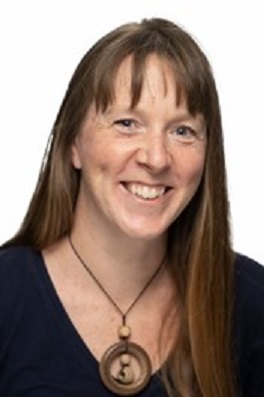 Janet Macdonald, Vanderbilt University, United States
Janet Macdonald, Vanderbilt University, United States
Janet Macdonald is an associate professor of chemistry at Vanderbilt University and a member of the Vanderbilt Institute for Nanoscale Science and Engineering. Her research program focuses on the phase-selective synthesis of nanocrystalline materials, especially preparing non-natural phases of metal chalcogenides. Her group also studies fundamental charge transfer phenomena from semiconductor nanocrystals for solar-to-fuel technologies and photovoltaics, including specialized ligand synthesis to aid charge transfer.
Janet received her bachelor’s degree in chemistry from McGill University, followed by a PhD from the University of Alberta in 2008. After postdoctoral research at the Hebrew University of Jerusalem, she joined the chemistry faculty at Vanderbilt University in 2011.
 Erin Ratcliff, University of Arizona, United States
Erin Ratcliff, University of Arizona, United States
Prof. Erin Ratcliff in an Associate Professor of Chemical and Environmental Engineering at the University of Arizona, with courtesy appointments in Materials Science and Engineering and Chemistry and Biochemistry. She also holds a joint appointment at the National Renewable Energy Laboratory. At UArizona, Prof. Ratcliff is the Director of the Laboratory for Interface Science of Printable Electronic Materials and co-Director of the Institute for Energy Solutions. She received a PhD in Physical Chemistry at Iowa State University in 2007, where she established her love of electrochemical methods and interface science. Her research focuses on mechanisms of electron transfer and transport across interfaces, including semiconductor/electrolyte interfaces and durability of printable electronic materials, including organic semiconductors and metal halide perovskites.
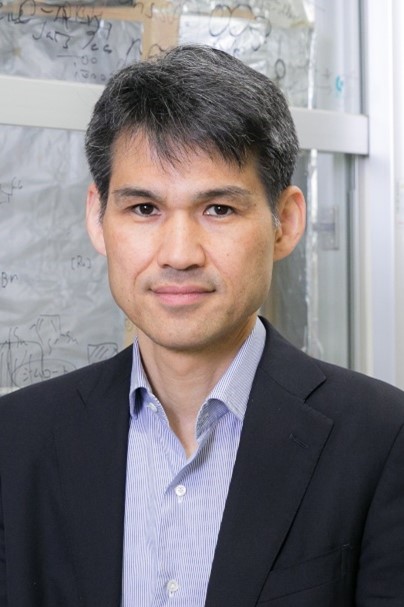 Kazuo Takimiya, RIKEN, Japan
Kazuo Takimiya, RIKEN, Japan
Kazuo Takimiya received his Ph. D. in 1994 from Hiroshima University under the supervision of Professor Fumio Ogura. Thereafter, he joined Professor Tetsuo Otsubo’s research group at Hiroshima University where he studied organic conductors/superconductors. After returning from his stay in Professor Jan Becher’s group at Odense University, Denmark (1997-1998), he was promoted to associate professor in 2003, and to a full professor in 2007 at Hiroshima University. In 2013, his group moved to RIKEN Center for Emergent Matter Science (CEMS). He was then appointed as a professor in Tohoku University in 2017. His current interests are the synthesis, characterization, and application of organic semiconductors, especially heteroaromatic-based small molecule and polymer semiconductors to field-effect transistors, photovoltaics, and thermoelectric devices.
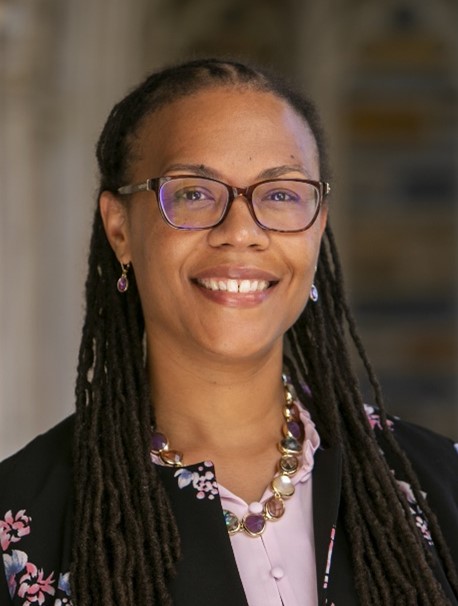 Adrienne Stiff-Roberts, Duke University, United States
Adrienne Stiff-Roberts, Duke University, United States
Adrienne Stiff-Roberts is Jeffrey N. Vinik Professor of Electrical and Computer Engineering at Duke University, where she is also the Associate Dean for Community-Based Innovation and Director of Graduate Studies for the University Program in Materials Science and Engineering. Dr. Stiff-Roberts received a B.S. in physics from Spelman College (1999), a B.E.E. in electrical engineering from Georgia Tech (1999), and an M.S.E. in electrical engineering (2001) and a Ph.D. in applied physics (2004) from the University of Michigan, Ann Arbor. Her research interests include the synthesis of multi-component and hybrid (organic-inorganic) materials using a novel approach for organic-based thin film deposition that combines solution- and vacuum-processing. Known as resonant infrared matrix-assisted pulsed laser evaporation (RIR-MAPLE), this technique offers unique integration of novel functions into organic-based films and devices that are difficult, if not impossible, to achieve otherwise.
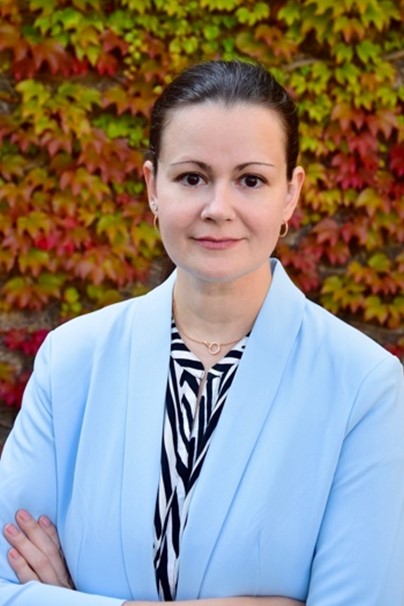 Yana Vaynzof, Leibniz Institute for Solid State and Materials Research , Germany
Yana Vaynzof, Leibniz Institute for Solid State and Materials Research , Germany
Prof. Dr. Yana Vaynzof is the Chair for Emerging Electronic Technologies at the Technical University of Dresden (Germany) and a Director at the Leibniz Institute for Solid State and Materials Research Dresden. She received a B.Sc. in Electrical Engineering from the Technion – Israel Institute of Technology (Israel) in 2006 and a M. Sc. In Electrical Engineering from Princeton University (USA) in 2008. In 2011, she received a Ph.D. in Physics from the University of Cambridge (UK). From 2011 to 2013, Yana was a postdoctoral research associate at the Cavendish Laboratory, University of Cambridge (UK) and an assistant professor at Heidelberg University (Germany) from 2014 to 2019. Yana Vaynzof is the recipient of a number of fellowships and awards, including the ERC Starting Grant, ERC Consolidator Grant, Gordon Wu Fellowship, Henry Kressel Fellowship, Fulbright-Cottrell Award and the Walter Kalkhof-Rose Memorial Prize. Her research interests lie in the field of emerging photovoltaics focusing on the study of material and device physics of organic, quantum dot and perovskite solar cells.
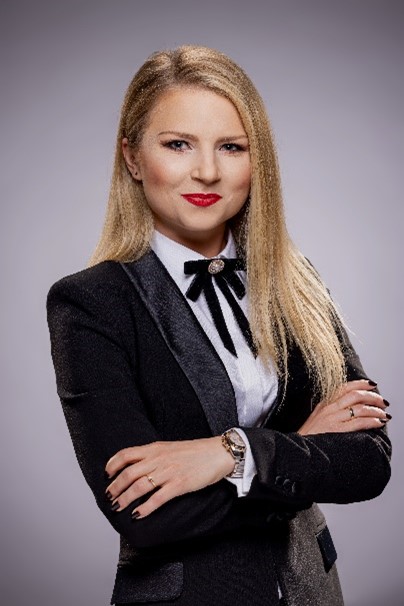 Ewa Wierzbicka, Military University of Technology, Poland
Ewa Wierzbicka, Military University of Technology, Poland
Dr Ewa Wierzbicka graduated in Chemistry from Jagiellonian University in Krakow, Poland with a Doktor/PhD degree in 2016. In 2017 she started work as a postdoctoral researcher at the Department of Materials Science and Metallurgical Engineering, Complutense University of Madrid, Spain in the international ALMAGIC. Next, she worked at the University of Erlangen–Nuremberg, Germany, Department of Materials Science in the field of photocatalysis and later, materials synthesis for application in photoelectrocatalysis in the framework of the Humboldt Research Fellowship at the Humboldt University of Berlin. From May 2022, she is leading a research project at the Military University of Technology in Warsaw, Poland sponsored by The Polish National Agency for Academic Exchange and National Science Centre. Her current research is focused on varied forms of TiO2 synthesis/modification (nanopowders, anodic nanoporous layers, single crystals) by metal doping, formation of core–shell metal–semiconductor junctions, surface reduction by high-temperature hydrogen annealing, or light-induced effects.
-
Yan Lu
Helmholtz-Zentrum Berlin, Germany
-
Eva Unger
Lund University, Sweden
















